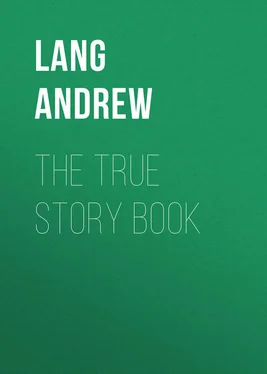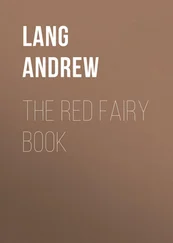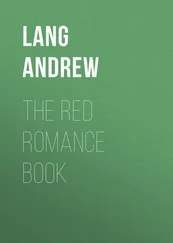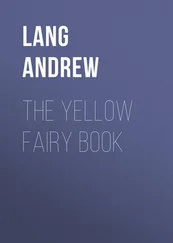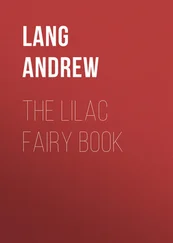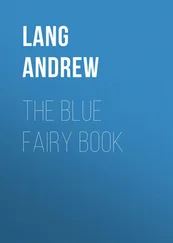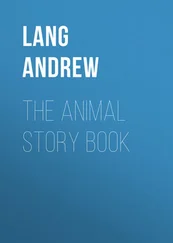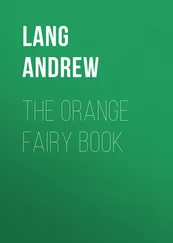Andrew Lang - The True Story Book
Здесь есть возможность читать онлайн «Andrew Lang - The True Story Book» — ознакомительный отрывок электронной книги совершенно бесплатно, а после прочтения отрывка купить полную версию. В некоторых случаях можно слушать аудио, скачать через торрент в формате fb2 и присутствует краткое содержание. Жанр: foreign_antique, foreign_prose, на английском языке. Описание произведения, (предисловие) а так же отзывы посетителей доступны на портале библиотеки ЛибКат.
- Название:The True Story Book
- Автор:
- Жанр:
- Год:неизвестен
- ISBN:нет данных
- Рейтинг книги:3 / 5. Голосов: 1
-
Избранное:Добавить в избранное
- Отзывы:
-
Ваша оценка:
- 60
- 1
- 2
- 3
- 4
- 5
The True Story Book: краткое содержание, описание и аннотация
Предлагаем к чтению аннотацию, описание, краткое содержание или предисловие (зависит от того, что написал сам автор книги «The True Story Book»). Если вы не нашли необходимую информацию о книге — напишите в комментариях, мы постараемся отыскать её.
The True Story Book — читать онлайн ознакомительный отрывок
Ниже представлен текст книги, разбитый по страницам. Система сохранения места последней прочитанной страницы, позволяет с удобством читать онлайн бесплатно книгу «The True Story Book», без необходимости каждый раз заново искать на чём Вы остановились. Поставьте закладку, и сможете в любой момент перейти на страницу, на которой закончили чтение.
Интервал:
Закладка:
The True Story Book
DEDICATION
You like the things I used to like,
The things I'm fond of still,
The sound of fairy wands that strike
Men into beasts at will;
The cruel stepmother, the fair
Stepdaughter, kind and leal,
The bull and bear so debonair,
The trenchant fairy steel.
You love the world where brute and fish
Converse with man and bird,
Where dungeons open at a wish,
And seas dry at a word.
That merry world to-day we leave,
We list an ower-true tale,
Of hearts that sore for Charlie grieve,
When handsome princes fail,
Of gallant races overthrown,
Of dungeons ill to climb,
There's no such tale of trouble known,
In all the fairy time.
There Montezuma still were king,
There Charles would wear the crown,
And there the Highlanders would ding
The Hanoverian down:
In Fairyland the Rightful Cause
Is never long a-winning,
In Fairyland the fairy laws
Are prompt to punish sinning:
For Fairyland's the land of joy,
And this the world of pain,
So back to Fairyland, my boy,
We'll journey once again!
INTRODUCTION
It is not without diffidence that the editor offers The True Story Book to children. We have now given them three fairy books, and their very kind and flattering letters to the editor prove, not only that they like the three fairy books, but that they clamour for more. What disappointment, then, to receive a volume full of adventures which actually happened to real people! There is not a dragon in the collection, nor even a giant; witches, here, play no part, and almost all the characters are grown up. On the other hand, if we have no fairies, we have princes in plenty, and a sweeter young prince than Tearlach (as far as this part of his story goes) the editor flatters himself that you shall nowhere find, not in Grimm, or Dasent, or Perrault. Still, it cannot be denied that true stories are not so good as fairy tales. They do not always end happily, and, what is worse, they do remind a young student of lessons and schoolrooms. A child may fear that he is being taught under a specious pretence of diversion, and that learning is being thrust on him under the disguise of entertainment. Prince Charlie and Cortés may be asked about in examinations, whereas no examiner has hitherto set questions on 'Blue Beard,' or 'Heart of Ice,' or 'The Red Etin of Ireland.' There is, to be honest, no way of getting over this difficulty. But the editor vows that he does not mean to teach anybody, and he has tried to mix the stories up so much that no clear and consecutive view of history can possibly be obtained from them; moreover, when history does come in, it is not the kind of history favoured most by examiners. They seldom set questions on the conquest of Mexico, for example.
That is a very long story, but, to the editor's taste, it is simply the best true story in the world, the most unlikely, and the most romantic. For who could have supposed that the new-found world of the West held all that wealth of treasure, emeralds and gold, all those people, so beautiful and brave, so courteous and cruel, with their terrible gods, hideous human sacrifices, and almost Christian prayers? That a handful of Spaniards, themselves mistaken for children of a white god, should have crossed the sea, should have found a lovely lady, as in a fairy tale, ready to lead them to victory, should have planted the cross on the shambles of Huitzilopochtli, after that wild battle on the temple crest, should have been driven in rout from, and then recaptured, the Venice of the West, the lake city of Mexico – all this is as strange, as unlooked for, as any story of adventures in a new planet could be. No invention of fights and wanderings in Noman's land, no search for the mines of Solomon the king, can approach, for strangeness and romance, this tale, which is true, and vouched for by Spanish conquerors like Bernal Diaz, and by native historians like Ixtlilochitl, and by later missionaries like Sahagun. Cortés is the great original of all treasure-hunters and explorers in fiction, and here no feigned tale can be the equal of the real. As Mr. Prescott's admirable history is not a book much read by children (nor even by 'grown-ups' for that matter), the editor hopes children will be pleased to find the 'Adventures in Anahuac' in this collection. Miss Edgeworth tells us in Orlandino how much the tale delighted the young before Mr. Prescott wrote that excellent narrative of the world's chief adventure. May it please still, as it did when the century was young!
The adventures of Prince Charlie are already known, in part, to boys and girls who have read the Tales of a Grandfather , for pleasure and not as a school book. But here Mrs. McCunn has treated of them at greater length and more minutely. The source, here, is in these seven brown octavo volumes, all written in the closest hand, which are a treasure of the Advocates' Library in Edinburgh. The author is Mr. Forbes, a bishop of the persecuted Episcopalian Church in Scotland. Mr. Forbes collected his information very carefully, closely comparing the narratives of the various actors in the story. Into the boards of his volumes are fastened a scrap of the Prince's tartan waistcoat, a rag from his sprigged calico dress, a bit of his brogues – a twopenny treasure that has been wept and prayed over by the faithful. Nobody, in a book for children, would have the heart to tell the tale of the Prince's later years, of a moody, heart-broken, degraded exile. But, in the hills and the isles, bating a little wilfulness and foolhardiness, and the affair of the broken punch-bowl, Prince Charles is a model for princes and all men, brave, gay, much-enduring, good-humoured, kind, royally courteous, and considerate, even beyond what may be gathered from this part of the book, while the loyalty of the Highlanders (as in the case of Mackinnon, flogged nearly to death) was proof against torture as well as against gold. It is the Sobieski strain, not the Stuart, that we here admire in Prince Charles; it is a piety, a loyalty, a goodness like Gordon's that we revere in old Lord Pitsligo in another story.
Many of the tales are concerned with fighting, for that is the most dramatic part of mortal business. These English captives who retake a ship from the Turks, these heroes of the Shannon and the Chesapeake , were doubtless good men and true in all their lives, but the light of history only falls on them in war. The immortal Three Hundred of Thermopylæ would also have been unknown, had they not died, to a man, for the sake of the honour of Lacedæmon. The editor conceives that it would have been easy to give more 'local colour' to the sketch of Thermopylæ: to have dealt in description of the Immortals, drawn from the friezes in Susa, lately discovered by French enterprise. But the story is Greek, and the Greeks did not tell their stories in that way, but with a simplicity almost bald. Yet who dare alter and 'improve' the narrative of Herodotus? In another most romantic event, the finding of Vineland the Good, by Leif the Lucky, our materials are vague with the vagueness of a dream. Later fancy has meddled with the truth of the saga. English readers, no doubt, best catch the charm of the adventure in Mr. Rudyard Kipling's astonishingly imaginative tale called 'The Best Story in the World.' For the account of Isandhlwana, and Rorke's Drift, 'an ower-true tale,' the editor has to thank his friend Mr. Rider Haggard, who was in South Africa at the time of the disaster, and who has generously given time and labour to the task of ascertaining, as far as it can be ascertained, the exact truth of the melancholy, but, finally, not inglorious, business. The legend of 'Two Great Cricket Matches' is taken, in part, from Lillywhite's scores, and Mr. Robert Lyttelton's spirited pages in the 'Badminton' book of Cricket. The second match the editor writes of 'as he who saw it,' to quote Caxton on Dares Phrygius. These legends prove that a match is never lost till it is won.
Читать дальшеИнтервал:
Закладка:
Похожие книги на «The True Story Book»
Представляем Вашему вниманию похожие книги на «The True Story Book» списком для выбора. Мы отобрали схожую по названию и смыслу литературу в надежде предоставить читателям больше вариантов отыскать новые, интересные, ещё непрочитанные произведения.
Обсуждение, отзывы о книге «The True Story Book» и просто собственные мнения читателей. Оставьте ваши комментарии, напишите, что Вы думаете о произведении, его смысле или главных героях. Укажите что конкретно понравилось, а что нет, и почему Вы так считаете.
